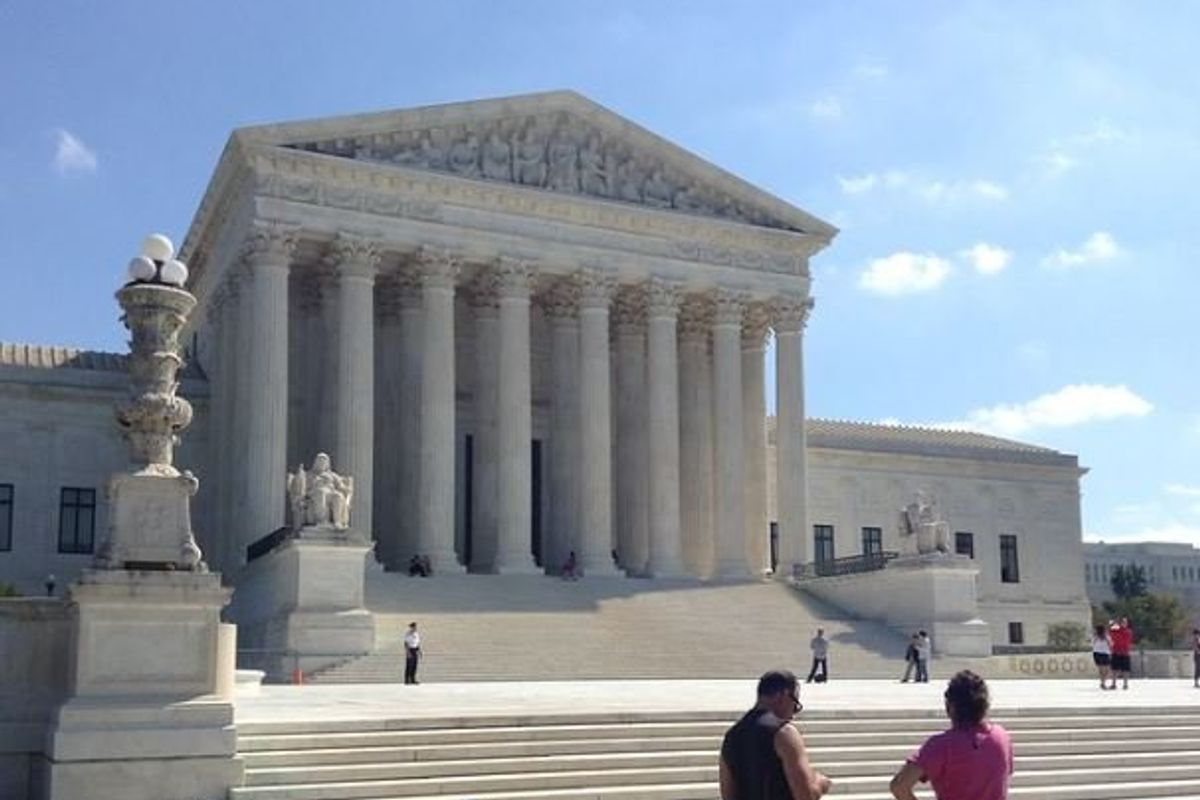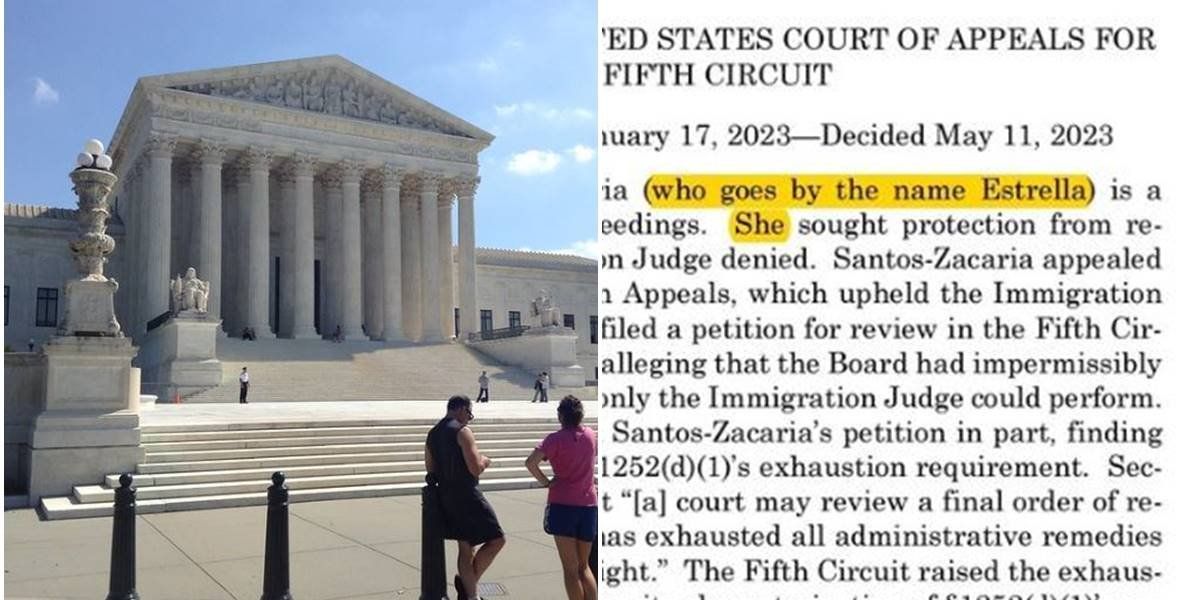
Amidst the backdrop of a passionate cultural debate over transgender rights, the Supreme Court has made a landmark ruling that uses a transgender woman’s pronouns and chosen name. A ruling written by Justice Ketanji Brown Jackson refers to Estrella Santos-Zacaria, a transgender woman who was given the name Leon Santos-Zacaria and assigned male at birth, as “she.”
The court sided with Santos-Zacaria, 34, in a case centered around a migrant’s rights to appeal a denial of protection from removal from the U.S. The court’s unanimous ruling now gives Santos-Zacaria another chance to contest the immigration officials’ rejection of her plea to stay in the U.S.
Throughout the 19-page opinion, Jackson used the term “her” to refer to the petitioner seven times and referred to her as “she” in the opening sentence.
\u201cThe Supreme Court’s first decision of the day is in Santos-Zacaria v. Garland. KBJ’s opinion for the court holds that noncitizens need not request reconsideration of an unfavorable Board of Immigration Appeals decision to satisfy administration exhaustion. https://t.co/O0U6kxsoht\u201d— Mark Joseph Stern (@Mark Joseph Stern)
1683813833
“Petitioner Leon Santos-Zacaria (who goes by the name Estrella) fled her native Guatemala in her early teens,” Jackson wrote. “She has testified that she left that country, and fears returning, because she suffered physical harm and faced death threats as a transgender woman who is attracted to men.”
The opinion was joined by Justices Sonia Sotomayor, John Roberts, Elena Kagan, Amy Coney Barrett, Neil Gorsuch and Brett Kavanaugh.
Justice Samuel Alito wrote a concurrence joined by Justice Clarence Thomas that avoided the pronoun issue altogether. Alito’s discussion only references the statue and avoids referring to Santos-Zacaria. It used general terms such as “this case” and “the circumstances presented here.”
\u201cIn a major immigrants rights decision from SCOTUS today, the court ruled in favor of a trans female asylum seeker on a procedural question. They used her preferred name and correct pronouns.\u201d— Alejandra Caraballo (@Alejandra Caraballo)
1683814636
Santos-Zacaria was raped at the age of 12 in Guatemala and endured many threats of violence due to her gender identity. Fearing for her safety, she fled Guatemala and unlawfully entered the United States in 2008. She was deported twice and returned to the U.S. in 2018 after a gang in Mexico raped and assaulted her.
Her case came to the Supreme Court after a U.S. immigration judge found that she didn’t make a strong enough case that she would face persecution in Guatemala. The decision contradicts the fact that the State Department has found that Guatemala has done little to protect LGBTQ people.
The Supreme Court’s subtle nod to transgender rights comes at a time when politicians across the country have introduced over 430 bills that restrict fundamentals like health care, education and freedom of expression for LGBTQ people. About 1.6 million American teens and adults identify as transgender.
Trans rights look to be a big issue in the 2024 election, and the intense focus has many transgender people on edge.
“Across the community, there’s a broad array of reactions,” Imara Jones, the founder and chief executive of TransLash Media, told The Hill. “Some people are afraid, others are motivated, others are angry, others are fighting back.”
Americans seem to have conflicting feelings about trans issues. A 2022 poll found that 60% of Americans believe that “whether a person is a man or a woman is determined by sex assigned at birth,” up from 54% in 2017. However, 64% of support laws that protect trans people from discrimination in jobs, housing and public spaces.

